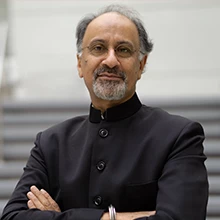On September 23rd 2013, Gary Becker spoke about inequality and government policy here at the World Bank. In introducing him, Kaushik Basu, the Chief Economist at the World Bank, paid him the highest tribute, calling him one of the most towering figures in our profession. “There are people who describe themselves as Beckerian and that is important,” Kaushik said. “But Gary Becker is much more than that. Many years ago at a conference, someone came to me and said, ‘You know, I am non-Beckerian’. It is one thing to have a school. But to have a school that is identified as ‘non-you’ is truly remarkable. We do hear of the non-Euclidean school and a few others, but this puts you in a special category.”
I first met Gary Becker in the Autumn of 1983 when I took Economics 301—Price Theory—at the University of Chicago. I remember it as if it were yesterday, because the lectures completely changed the way I thought. Like his other students, I will always be a Beckerian.
At first, though, I did not think that Becker was actually being serious. He told us seemingly farfetched things—like if the rate of interest goes up people had fewer kids. I expected that any time soon he’d crack up and start laughing and say “I had you folks going, didn’t I? Now let me teach you idiots the real stuff.” When I realized that he was serious, I thought he was crazy. Interest rates affect the size of the house you buy, not the size of your family. Becker was going too far with this price thing. A few more days and I began to think hmmm …. maybe he’s got a point. Then he made another point, and another. By the end of the class the only thing you were left wondering about is why everyone didn’t think the same way.
That transformative course was my introduction to Gary Becker and to—what is the same thing—the very best of Chicago Economics. I was one of the lucky people who got to write their Ph.D. dissertation under Mr. Becker’s careful and caring supervision. And I have been especially fortunate because we stayed in touch and he continued to be my teacher more than 25 years after he formally finished supervising my studies.
Almost 30 years after I first met him, Mr. Becker, his wife Professor Guity Nashat, and I were at Reagan National Airport for their flight back to Chicago. In the middle of our conversation, he turned to me and said that I should call him Gary, not Mr. Becker. I replied that I could never do that; he was the same age as my father. Guity, who is Asian like I am, told me: “I understand completely, Indermit. You can call him whatever you like.”
I will call him the greatest social scientist of our times. Through his ideas and the thousands he educated, Gary Becker will continue to shape the economic profession—and the world. Mr. Becker, you can rest in peace.


Join the Conversation